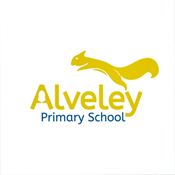EYFS Curriculum
EYFS Curriculum
The Early Years Foundation Stage (EYFS) begins at birth and ends when a child is 5, at the end of the reception year. The Early Years unit at Alveley Primary School caters for children aged 3 - 5 years old, traditionally the nursery and reception classes.
The Early Years Foundation Stage Statutory Framework published in 2012 (updated in 2014) by the Department for Education that sets the standards for the development, learning and care of children from birth to five.
The EYFS Profile summarises and describes children’s attainment at the end of the EYFS. It is based on ongoing observation and assessment of the three characteristics of effective learning throughout the three prime and four specific areas of learning. There are 17 Early Learning Goals associated with the 7 areas of learning. The children are assessed against these goals at the end of the Reception year.
Characteristics of effective learning:
- playing and exploring
- active learning
- creating and thinking critically
The prime areas of learning:
- communication and language
- physical development
- personal, social and emotional development
The specific areas of learning:
- literacy
- mathematics
- understanding the world
- expressive arts and design
This document, "Development Matters", looks at the stages of development before the Early Learning Goals and may be of interest to you. We use these stages to track your child's progress before they have reached the ELGs.
Children work within the Early Years Foundation Stage (EYFS) during Nursery and Reception. In EYFS at Alveley School, children learn through adult led activities and child initiated learning, putting children’s interests at the heart of this. Children are involved in choosing their topics and learning is planned to
ensure that all children reach their full potential. Learning is carefully assessed and next steps quickly identified.
A positive ethos is at the heart of our EYFS unit. It is extremely important that all children feel happy and comfortable within the setting, where they are constantly supported. The children's achievements are recognised and celebrated. This ethos allows for, and encourages, problem solving, resilience, curiosity and high levels of engagement. All adults recognise the importance of developing a strong, positive, trusting relationship with each child, knowing each of them as an individual.
Each day, children have adult led activities, including a daily phonics lesson delivered to all children. In Reception, there is a focus on either maths or Literacy during the morning, with other areas of the framework covered in the afternoons. Following their adult led learning, children work with a teacher to complete scaffolded activities. While some children are completing work with their teacher, others engage in child initiated learning, supported by other adults.

